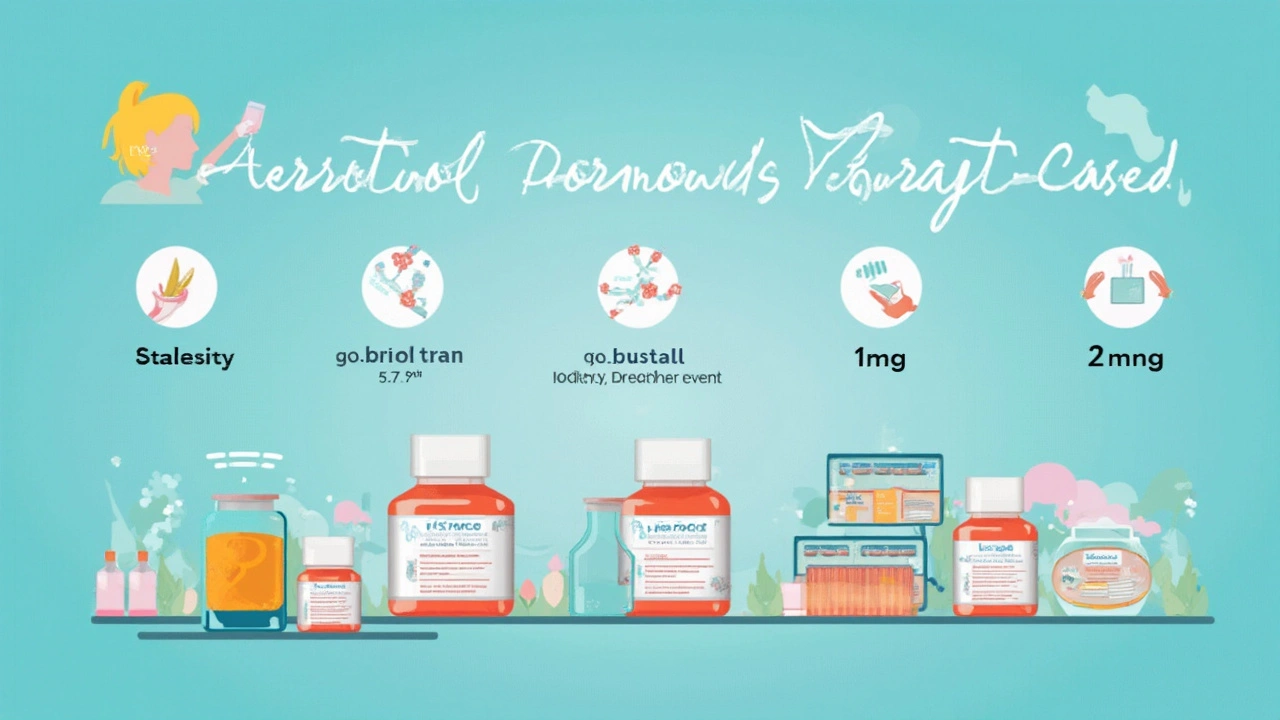Ever wondered why doctors keep talking about estradiol? It’s the most potent form of estrogen in your body, and it plays a starring role in everything from menstrual cycles to bone health. Whether you’re dealing with menopause symptoms, using hormonal birth control, or need hormone replacement therapy (HRT), estradiol is often the active ingredient that makes the difference.
In simple terms, estradiol is a hormone your ovaries produce. It helps thicken the lining of the uterus, supports breast tissue, and keeps cholesterol in check. When natural production drops—like after the last period—supplementing with estradiol can smooth out hot flashes, mood swings, and the dreaded night sweats.
Doctors can give estradiol in several formats: pills, patches, gels, or even injections. The choice depends on how steady you need the hormone levels to be and your personal preferences. For example, a patch releases the drug through the skin all day, so you don’t have to remember a daily pill. Gels are rubbed on the arms or thighs and are easy to adjust if you need a higher or lower dose.
Typical doses for menopause range from 0.5 mg to 2 mg per day in pill form, while patches might deliver 0.025 mg to 0.1 mg per day. When estradiol is part of a combined birth‑control pill, the estrogen component is usually around 0.02 mg to 0.05 mg. Always start at the lowest effective dose—you’ll feel the benefits without piling on unnecessary side effects.
Estradiol isn’t a magic bullet; it can cause headaches, breast tenderness, or mild nausea, especially when you first start. Keep an eye on any unusual spotting or mood changes, and tell your doctor right away. Long‑term use can raise the risk of blood clots, especially if you smoke or have a history of clotting disorders. That’s why regular check‑ups are a must.
Here are a few quick safety habits:
Women with a uterus who take estradiol alone should also have a progestin added to protect the lining of the uterus from over‑growth, which could lead to cancer. If you’ve had a hysterectomy, estradiol‑only therapy is usually fine.
Bottom line: estradiol can be a game‑changer for managing menopause symptoms and supporting birth‑control regimens, but it works best when you tailor the dose, monitor side effects, and stay in touch with your healthcare provider. Got questions? Talk to your doctor—personalized advice is the safest route to feeling better.

Navigating the world of Estrace can be a bit daunting, but finding great deals doesn't have to be. Useful for hormone therapy, Estrace is a trusted solution, especially for those tackling menopause symptoms or estrogen deficiencies. Exploring reputable sources for affordable options is essential. This guide dives into dosages, side effects, and tips for securing the best prices.
read more